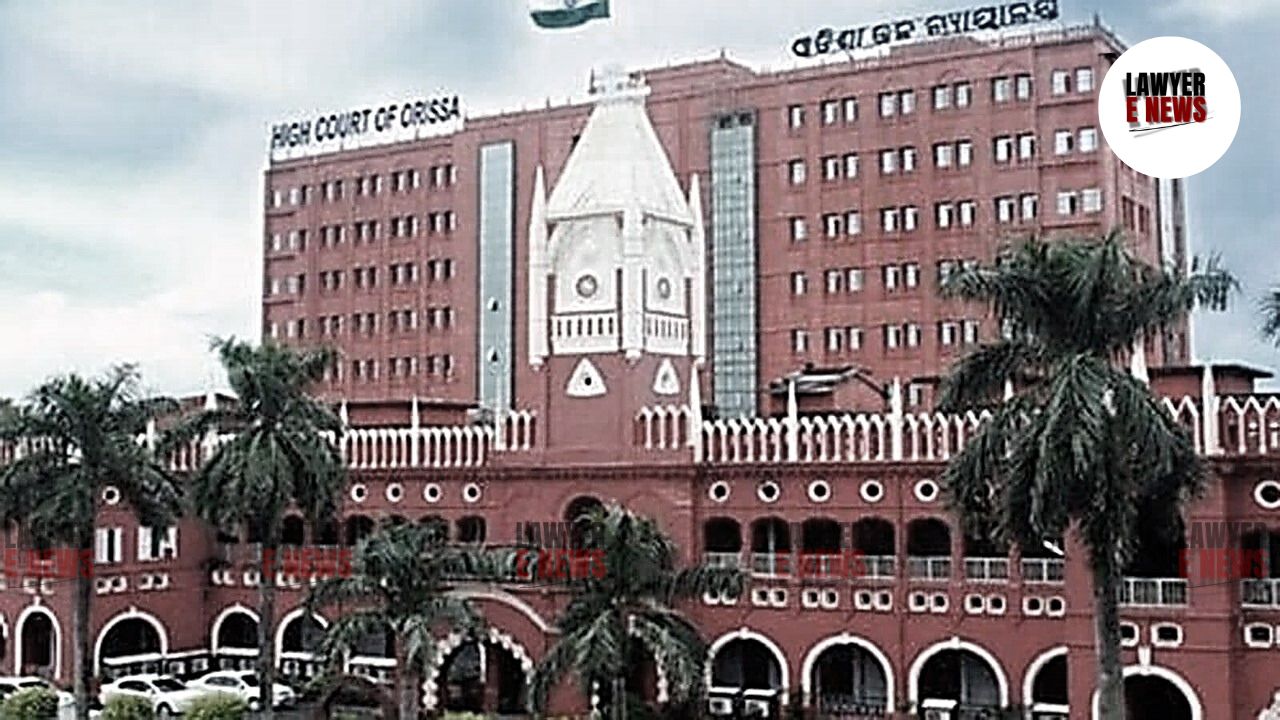-
by Admin
15 February 2026 5:35 AM



Orissa High Court ruled that a member of a Hindu Undivided Family (HUF) can transfer joint family property for charitable or pious purposes without the consent of other family members. The judgment came in the case of Bhudubeda Proposed High School v. Dhusasan Naik & Ors., where the court upheld the legality of a gift deed executed by one family member for the benefit of a school. This decision reversed a lower appellate court ruling, affirming that such transfers, made for the public good, align with Hindu law principles.
The case involved a dispute over a 0.60-acre plot of ancestral land, part of a larger joint family property. Lokanath Naik, a member of the family and defendant No. 2, gifted the land to Bhudubeda High School (defendant No. 1) in 1994 for constructing school buildings. The plaintiffs, Dhusasan Naik and others, claimed that Lokanath had no right to make the gift without their consent, as the land was joint family property.
The trial court ruled in favor of the defendants, upholding the gift as valid. However, the first appellate court reversed this decision, declaring the gift void, citing the absence of consent from the plaintiffs. The defendants then appealed to the Orissa High Court.
The main legal question was whether a member of an undivided Hindu family could gift joint family property for charitable or pious purposes without the consent of the other coparceners. The plaintiffs argued that the transfer was invalid because there had been no partition of the property and no consent from them.
The defendants, on the other hand, contended that the gift was made for a charitable purpose, which under Hindu law could be done by the managing member of the family, even without the consent of the other family members.
Justice A.C. Behera, presiding over the case, examined the legal principles surrounding the rights of a Hindu family member to gift property for pious purposes. The court referred to several Supreme Court judgments to support the proposition that under Hindu law, a father or managing member of an undivided family has the authority to donate ancestral property for pious or charitable purposes without needing the consent of other family members.
“A Hindu father or any other managing member of the family has power to make a gift of ancestral immovable property within reasonable limits for pious purposes even without the consent of the other members of the family.”
The court further clarified that the construction of a school for the benefit of the local community clearly qualifies as a charitable purpose, which is considered a pious act under Hindu law. The donation of the land for the school, therefore, fell within the scope of acceptable purposes for which property could be gifted without the need for consent from the plaintiffs.
The Orissa High Court ruled in favor of the appellants, overturning the first appellate court's decision. The court held that the gift deed executed by Lokanath Naik in favor of the school was valid, as it was done for a charitable purpose. The court confirmed the trial court’s ruling that the plaintiffs had no claim to the property and could not challenge the gift.
This decision highlights the authority of a managing member of a Hindu undivided family to make gifts of joint family property for public benefit, in line with Hindu law. It also reaffirms that such gifts, if made for charitable purposes, do not require the consent of other family members.
Date of Decision: September 30, 2024
Bhudubeda Proposed High School v. Dhusasan Naik & Ors..
